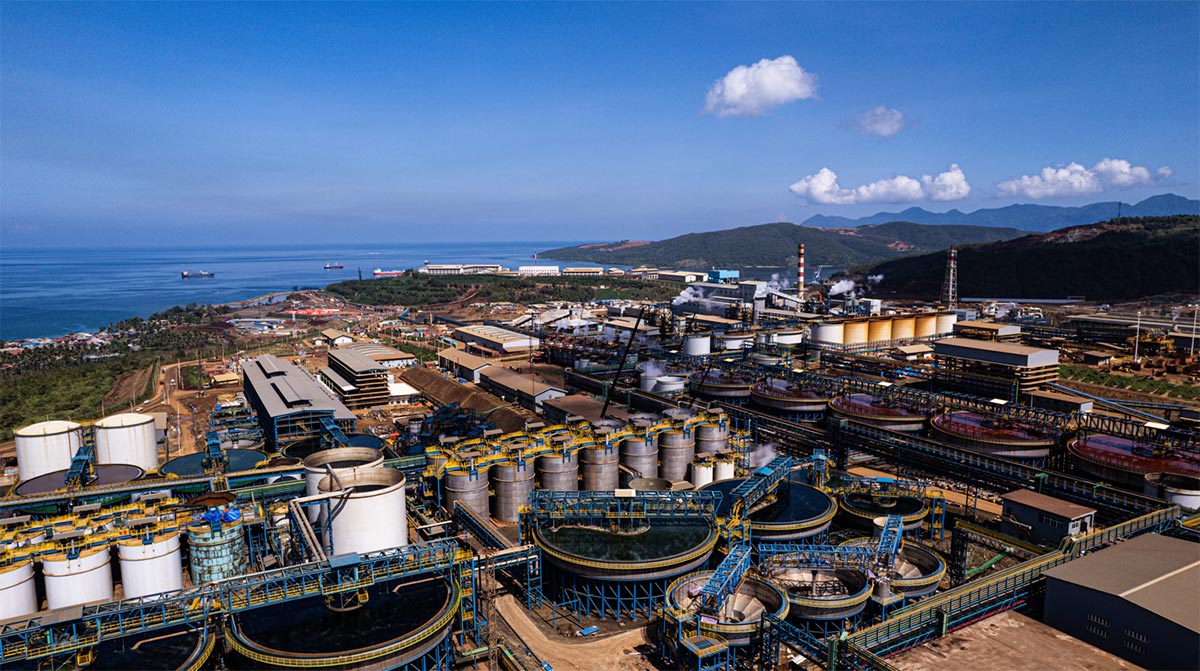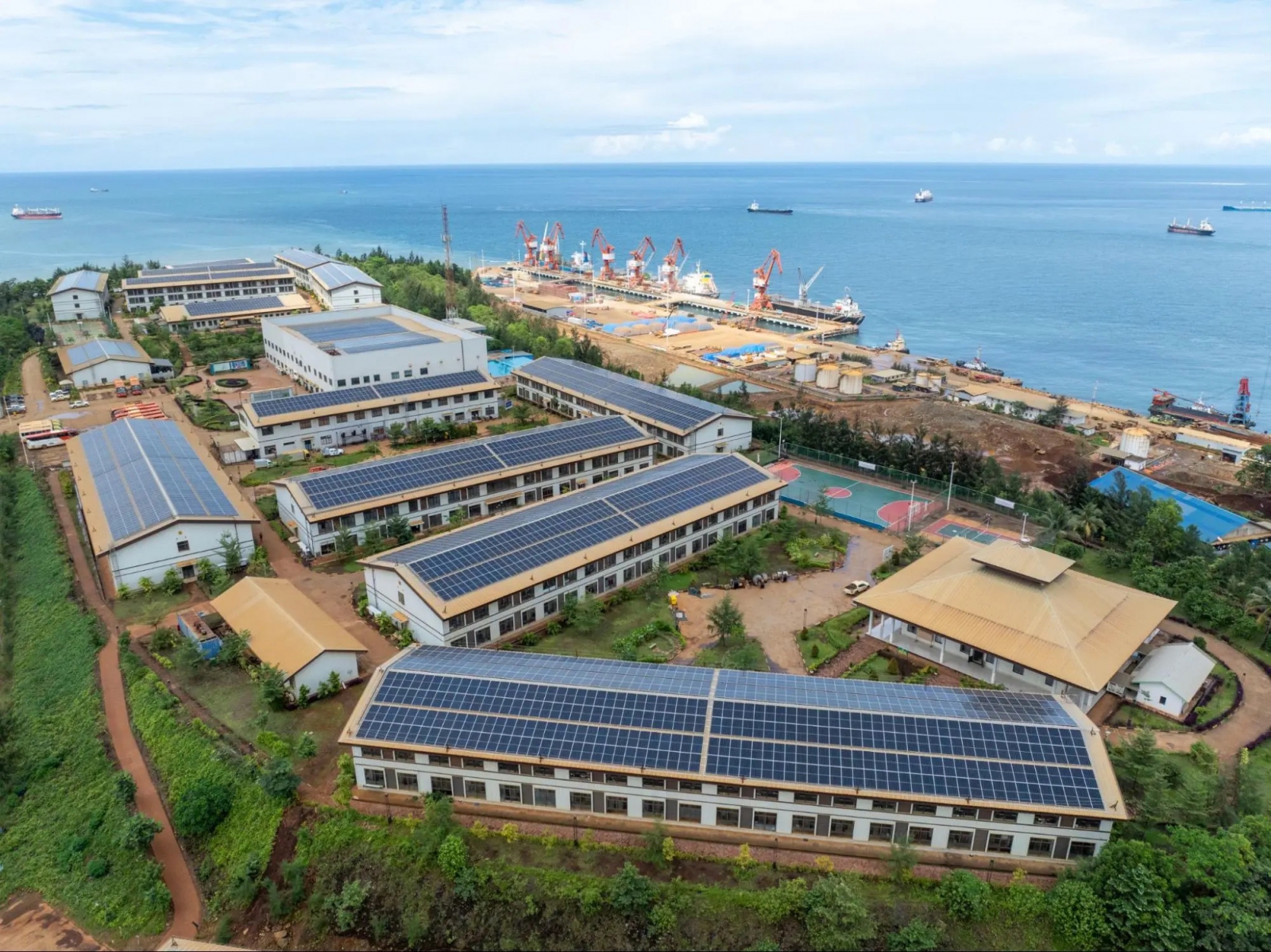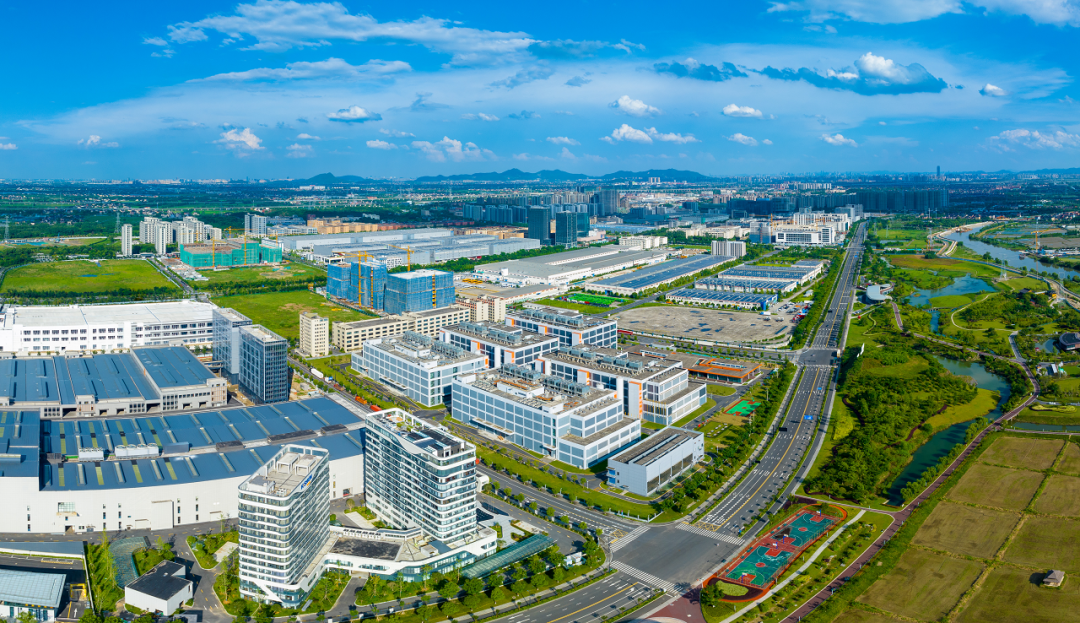
Indonesia is the world’s largest nickel supplier but still relies heavily on captive coal. (Photo: Harita Group)
Indonesia sits at the heart of the global clean energy transition, supplying nearly half of the world’s nickel reserves essential for electric vehicle batteries. Yet the country’s processing boom remains powered by captive coal, with 15.5 GW of capacity in operation in 2024 and projections exceeding 32 GW by 2031.
“Most nickel operations still rely on coal power. Transitioning won’t be as simple as flipping a switch,” said Zahedi Zakaria, ESG Transformation Manager at Harita Group, one of Indonesia’s largest nickel producers, during Ember’s Oct. 22 webinar “From Captive Coal to Green Nickel.”
Indonesia’s greenhouse gas emissions jumped from ninth to sixth globally within just a year, a stark reminder of how quickly its resource-driven growth is raising climate risks, said Wei Shen, senior research fellow at the International Institute of Green Finance.
Market pressures push Indonesia toward cleaner nickel
Captive coal power, or coal-fired plants built by industries to supply their own factories, industrial parks, and mining operations, has long fueled Indonesia’s nickel boom. With coal abundant and reliable, renewables have had little room to grow.
However, as global climate regulations tighten, Indonesia’s carbon-intensive model is coming under pressure. Continued reliance on coal could undermine its decarbonization goals and weaken its position in a market that increasingly rewards cleaner supply chains. Automakers and battery manufacturers are already demanding proof of low-carbon sourcing as the EU’s CBAM and battery-passport requirements take effect.
“Buyers are now asking not just what you produce, but how you produce it,” Zakaria said.
In response, the government has introduced the Nickel Industry Decarbonization Roadmap, which targets an 81% reduction in emissions by 2045. According to the Ember report, integrating renewables into nickel production and accelerating decarbonization could strengthen Indonesia’s competitiveness rather than hold it back.
Zakaria said the immediate task is to show that renewable power can be economically viable for energy-intensive industries, starting with pilot projects that can later be scaled up.
The Harita Group has begun developing several rooftop solar systems with a combined capacity of 40 MWp and has also set out a roadmap to reach net-zero emissions by 2060.
The potential payoff is significant. Imaduddin Abdullah from the Institute for Development of Economics and Finance said that modeling of five special economic zones shows clean power integration could attract up to USD 10 billion in new investment.
Indonesia’s special economic zones, home to energy-intensive industries like nickel smelting, are seen as key testing grounds for clean energy integration to meet global low-carbon standards and attract green investment.

Harita Group, one of Indonesia’s leading nickel producers, has begun developing rooftop solar systems with a combined capacity of 40 MWp. (Photo: Harita Group)
China’s role in Indonesia’s green nickel transition
China has long been a major investor in Indonesia’s nickel industry and will play a central role in its shift toward cleaner production.
By 2023, Chinese firms such as Tsingshan Holding Group and Jiangsu Delong Nickel Industry controlled about three-quarters of Indonesia’s smelting capacity and produced over 85 percent of its battery-grade nickel. Their early investments helped turn Indonesia into a global processing hub, and their continued involvement will shape how quickly the sector transitions to cleaner energy.
Many Chinese companies already operate under Beijing’s green industrial park standards, which require monitoring of energy use, emissions, and waste management. These standards are increasingly being applied to overseas operations as well.

Many Chinese companies already operate under Beijing’s green industrial park standards, and Chinese firms in Indonesia are increasingly expected to meet these requirements. (Photo: Green Partnership of Industrial Parks, China)
According to Anthony Coles, CEO of WhaleFall Tech, Chinese firms in Indonesia are increasingly expected to comply with these requirements, a shift that could align Indonesia’s nickel production with global buyer expectations and turn clean competitiveness into a shared goal.
If Jakarta, Beijing, and industry leaders act on that vision, Indonesia could move beyond being the world’s largest nickel supplier to become a leader in sustainable mineral production. “Better to shape the new market now than pay more to defend the old one later,” the Ember report concludes.
Source: Ember
.jpg)


